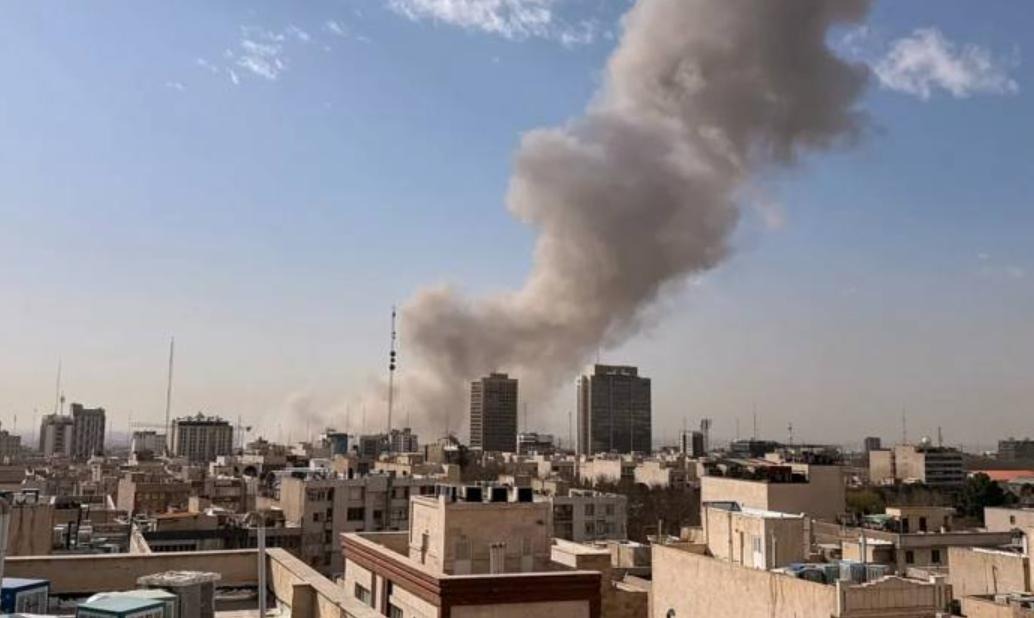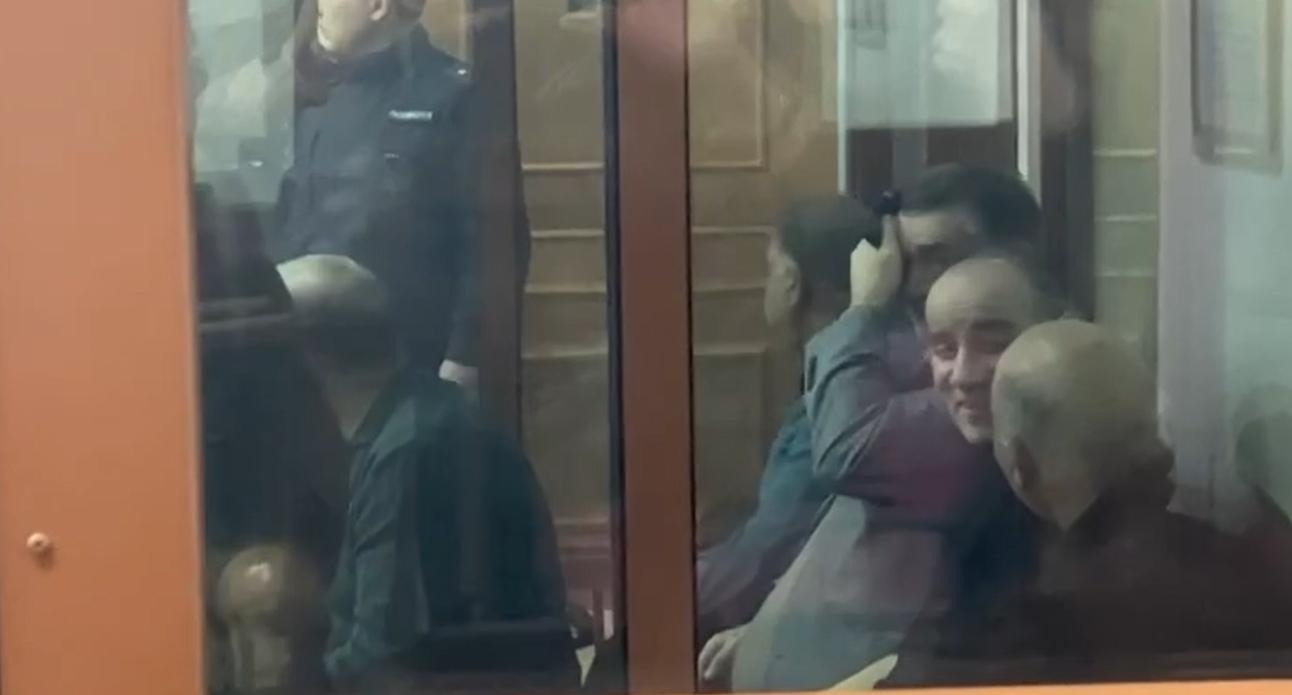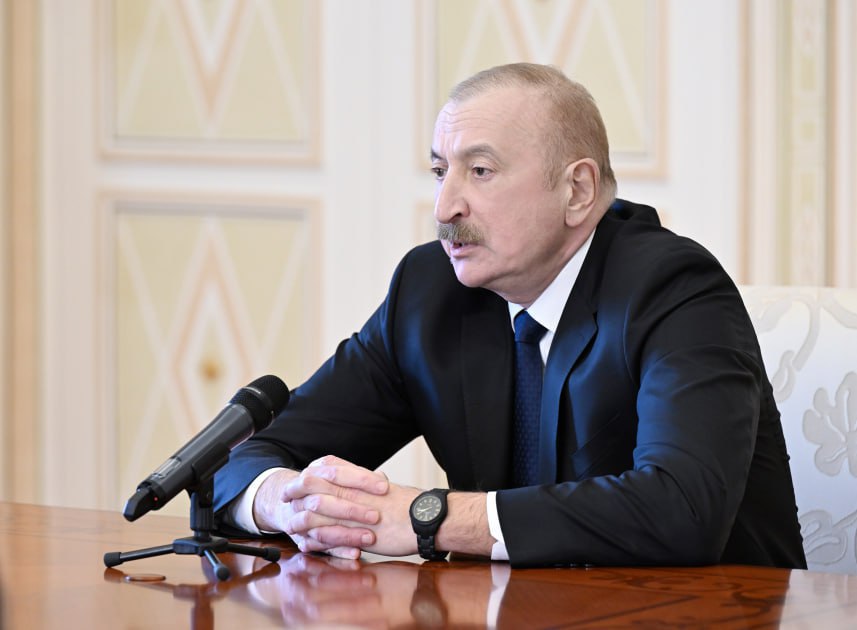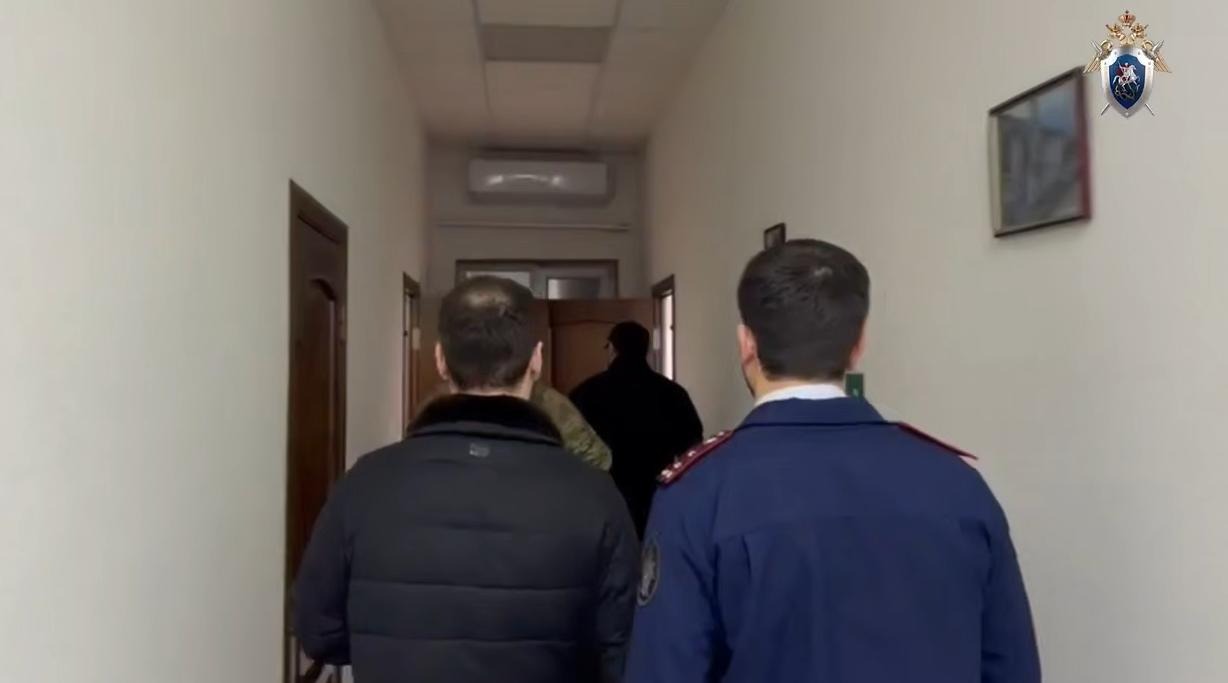On March 5, Azerbaijani President Ilham Aliyev received calls from leaders of various countries expressing solidarity with Baku in connection with the recent events. In particular, the drone attack on the Nakhchivan Autonomous Republic, carried out by Iran using unmanned aerial vehicles, was strongly condemned by Georgian Prime Minister Irakli Kobakhidze, Uzbek President Shavkat Mirziyoyev, UAE President Mohammed bin Zayed Al Nahyan, Turkish President Recep Tayyip Erdogan, and Latvian President Edgars Rinkēvičs. During the phone call, the politicians expressed support for the Azerbaijani people and wished a speedy recovery to those injured in the incident.
On September 15, the report of the Special Rapporteur of the UN Council on Human Rights in the Russian Federation was published. This position was established a year ago. The document contains a statement, confirmed by documentary evidence, that "the peaceful exercise of human rights, especially since the start of the full-scale armed attack of the Russian Federation on Ukraine in February 2022", is suppressed by increasingly repressive methods.
The author of the report, Bulgarian human rights activist Marianna Katsarova, previously worked in the combat zone in Chechnya and participated in monitoring human rights violations in the North Caucasus. She began working on the document on May 1, 2023. Her letters to the Russian government asking for cooperation went unanswered, but she held consultations with more than 60 Russian and international human rights organizations and individuals and studied nearly a hundred written statements from civil society representatives, human rights defenders, victims and witnesses of human rights violations in Russia.
Legislative News
The main part of the report is devoted to the analysis of new legislative acts restricting civil rights. Among them are laws on "foreign agents", "persons under foreign influence", "undesirable organizations", new articles in the Criminal Code on "fakes" and "discrediting the army", amendments to the federal laws "On Information, Information Technologies and Protection of Information" and "On Mass Media", tightening of legislation directed against the LGBTIQ+ community. Thus, by July 2023, at least 185 people were prosecuted under Article 207.3 - for public dissemination of "knowingly false information containing data on the use of the armed forces of the Russian Federation." The maximum penalty is 15 years in prison. Some of the harshest are the sentences of 8.5 years in prison for opposition politician Ilya Yashin and Dmitry Ivanov, a university student and creator of the Telegram channel "Protest MSU"; 7 years for independent municipal deputy Alexei Gorinov; 6 years for journalist Maria Ponomarenko.
In essence, the new legislation violates the Constitution of Russia. As noted in the report, after the suppression of protests against the attack on Ukraine, the Constitutional Court received 24 complaints from individuals claiming that Article 20.3.3 of the Code of Administrative Offenses contradicts the provisions of the Constitution, which enshrines the freedoms of expression and assembly. But the Constitutional Court, after examining these complaints, ruled that the article complied with the Basic Law.
“Usually, the judicial system functions as a check on the arbitrary exercise of legislative and executive power; however, in the Russian Federation, the judicial system is subject to political influence and manipulation. As a result, instead of playing its role as a check on the exercise of executive power, the judiciary often appears to strengthen it, even act as its mouthpiece, thereby calling into question the rule of law and undermining citizens’ trust in the judicial system,” Ms. Katsarova concludes.
“Media Genocide”
Country’s Media Freedom Rating Drops Nine Notches After Ukraine Invasion; By the summer of 2023, Russia ranked 164th out of 180. Russian authorities have opened at least 38 criminal cases against journalists under Article 207.3 (“fake news”) and 7 cases under Article 280.3 (“discrediting the army”) of the Criminal Code for anti-war reporting. Around 1,000 journalists left the country in 2022 due to the closure of independent media outlets and the threat of criminal prosecution. The report quotes the words of the editor-in-chief of Novaya Gazeta, Nobel Peace Prize laureate Dmitry Muratov: “In Russia, the genocide of the media has come to an end. Russian citizens are left alone in the face of government propaganda.” The Internet is also subject to censorship. The report cites data from the independent Roskomsvoboda project: in 2022, the Russian Federation blocked an average of 4,900 websites per week, and in the first six months of the invasion of Ukraine, about 7,000 websites were blocked for publishing information about the war. Roskomnadzor blocked or removed publications from more than 190,000 Internet pages, including 125,000 materials about the “special military operation”. In June 2023, the authorities announced that they planned to launch a “secure Internet” consisting of “safe” websites that fully comply with Russian law.
From School to Shaman
Anyone who opposes the war, including cultural figures, is being persecuted. The state uses a variety of tactics to control artistic expression and discourage political dissent, from concert bans to criminal prosecutions. Examples cited in the report include the case of 85-year-old Liya Akhedzhakova, whose performances were cancelled at the Sovremennik Theatre because of her anti-war comments, and the detention of director Yevgeniya Berkovich and playwright Svetlana Petriychuk on charges of “justifying terrorism” in connection with their play “Finist the Bright Falcon.”
“Lessons on the Important” have been introduced in schools across the Russian Federation to promote the government’s views on the war and condemn anti-war activities. Children who refuse to attend such classes and their parents are subject to pressure and harassment.
Mass arrests and detentions of peaceful protesters following the country's full-scale armed attack on Ukraine continued for weeks: more than 20,000 people were detained between February 2022 and June 2023 for participating in anti-war protests, and more than 600 criminal cases were opened for "anti-war activities."
The practice of forced psychiatric detention has returned. For example, the peaceful protesting shaman from Yakutia, Alexander Gabyshev, has fallen victim to such detention.
Contrary to all international standards, lawyers who defend the interests of human rights defenders, journalists, opposition activists, participants in anti-war demonstrations, or victims of human rights violations are subject to serious pressure. This is evident from the cases of the International Human Rights Group "Agora" and lawyers Galina Arapova, Maria Bontsler, Alexey Baranovsky, Mikhail Benyash, Bakhrom Khamroev, Ivan Pavlov, and Dmitry Talantov.
From Chechnya to Ukraine
A separate section of the report is devoted to human rights in the North Caucasus. “In recent years, there have been numerous reports of human rights violations in Chechnya, which continue to this day with impunity. Key issues include widespread torture, extrajudicial executions, enforced disappearances, detention without trial… Brutal attacks on and murders of independent journalists remain unsolved. In 65% of torture allegations received in 2021 and 2022, no criminal case was opened,” the UN representative notes.
The Special Rapporteur concluded that the human rights situation in Russia has steadily worsened over the past two decades, partly as a result of the two wars in Chechnya, and has worsened significantly since the Russian invasion of Ukraine in February 2022. The Russian authorities have severely restricted freedom of speech, association, peaceful assembly and expression, both online and offline, and have fundamentally undermined the independence of the judiciary and fair trial guarantees.
“The impunity of law enforcement officials in Chechnya, who are not held accountable for crimes against civilians that began during the two Chechen wars, is a warning to the rest of the Russian Federation. We must take into account the ongoing degradation of the Russian authorities, exacerbated by the war in Ukraine, and the suppression of attempts to protect human rights,” the rapporteur concludes.
What to do?
The Russian authorities are recommended to urgently repeal Articles 207.3, 275.1, 280.3 and 284.2 of the Criminal Code and immediately release persons detained under these provisions, repeal the laws on “foreign agents” and “undesirable organizations”, and release all political opposition activists arbitrarily detained for peacefully exercising their rights, in particular Vladimir Kara-Murza, Alexei Navalny and Ilya Yashin. Conduct effective, impartial and independent investigations into all cases of use of force, arbitrary detention and other forms of pressure, as well as a full review of the activities of the police and security services, and criminalize torture. Ensure respect for the right to conscientious objection to military service in law and in practice and ensure unimpeded access to alternative civilian service. Engage fully and indiscriminately with all United Nations human rights mechanisms. The international community is encouraged to continue monitoring in Russia and to support Russian independent media, human rights defenders, lawyers, cultural figures and civil society organizations both inside and outside the country.



